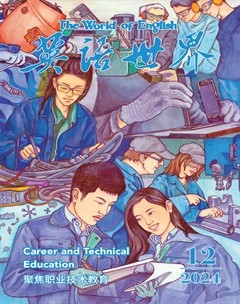这一期我们继续讨论几个抽象名词的翻译。如果说语境在中译英的过程中发挥重要的作用,那么就抽象名词的翻译而言,语境的作用更为重要。文化与语言的差异性在抽象名词方法表现尤其突出,而且抽象名词往往有较强的主观色彩,译者的翻译还需要根据上下文考虑作者的意图,从而选择合适的译文。
1. 气质
根据《现代汉语词典》(第7版)的解释,“气质”指“人的相当稳定的个性特点,如活泼、直爽、沉静、浮躁等。是高级神经活动在人的行动上的表现”。另外,“气质”也指“风格;气度”。因此,“气质”在具体的语境下所表述的意思各有不同,有时表示一种整体的性格,有时表述一个具体的特质。下面看看“气质”在不同语境下的理解和处理。
作为人民教师,她的气质与她的职业非常相符。
As a schoolteacher, she has a temperament that fits well with her job.
她母亲虽然没有读过什么书,但是很有气质。
Her mother is a woman of grace and poise, even though she did not have much schooling.
这两句里的“气质”,理解为个人总体的性格或个性,比较抽象。但在很多情况下,“气质”被具体的语言所修饰,形成较为具体的意义指向。例如:
他博览群书,气质儒雅。
He is a well-read person with a noticeable air of sophistication and learning.
多年的行伍,使他身上有一种独特的气质,让人过目难忘。
His years of military service has given him a unique quality that impresses everyone around him.
学习古典音乐多年来,她的气质变得更加内敛而深沉。
A lot of depth has been added to her character after her years of training in classical music.
他很有诗人的气质,但是做企业管理就有点捉襟见肘了。
He has a very poetic soul, but it would be a stretch for him when it comes to managing a business.
房间的装潢设计给人一种简约大方的气质。
The room’s design is simple and clean that conveys a sense of understated elegance.
他以为放荡不羁才可以显示艺术家的气质,哪知这种想法是极其错误的。
He lived a wild and reckless life, which he mistakenly believed was necessary for being an artist.
这几个例句中,“气质”的语境比较具体,“博览群书,气质儒雅” “独特的气质”“气质内敛深沉”“诗人的气质”“简约大方的气质”“艺术家的气质”等等,其修饰语已经对“气质”的内涵作了描述,意思比较清楚,可以根据具体的意思进行表述,不一定必须对应地将“气质”翻译为temperament 或demeanor。
2. 风度
《现代汉语词典》(第7版)对“风度”的释义是“人的举止姿态(多指美好的)”。“风度”也指人的气概、气量。也就是说,“风度”有两个明显不同的用法。看看下面的例句:
他处理事情从容不迫,颇有风度。
He is an organized person who handles things with composure and grace.
每次见到他,他总是衣冠整洁、风度翩翩。
He is always impeccably dressed and looks very respectable every time I see him.
他待人接物彬彬有礼,颇具风度。
He is polite and respectful, a man who is always impeccably mannered.
天开始下雨了,他展现出绅士风度,给女同事找了几把伞。
The moment it began to rain, he generously offered to find umbrellas for his female colleagues.
他虽然年轻,但写的文章颇具大家风度。
Young as he is, his writing exhibits the depth and insight of a seasoned scholar.
这几个例句中,“风度”的内涵都通过具体的描述展现出来,例如“做事有风度”“衣冠整洁有风度”“待人接物有风度” “绅士风度”“大家风度”。





